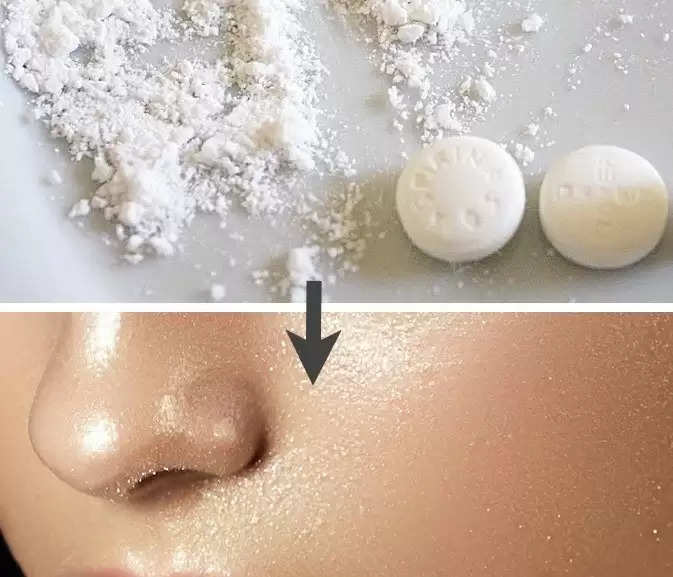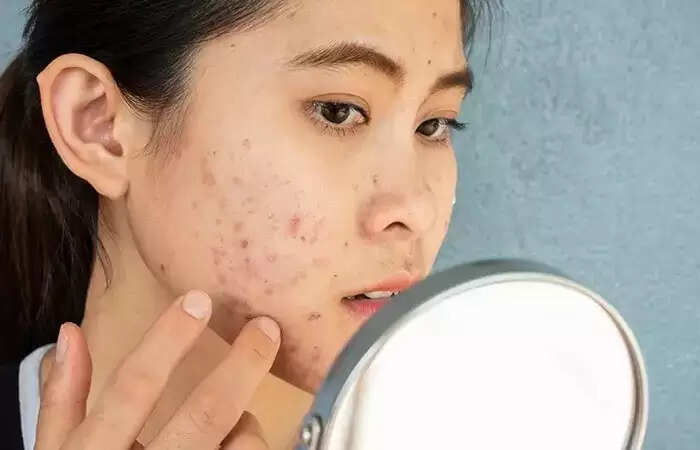Unveiling the Power of Aspirin: An Effective Acne Treatment?

You may have taken aspirin to relieve headaches, colds and fevers. However, did you know that you can also use aspirin for acne? Applying crushed aspirin to breakouts is one of the many DIY skincare remedies for pimple prevention. However, does this practice have any scientific merit? Does topical aspirin cure acne or reduce inflammation? This article tries to find out the truth behind the claims. Read ahead.
Aspirin: Does it have a role in dermatology?
Aspirin is used as an analgesic to relieve pain. However, over time, it has evolved from its traditional role as a pain reliever to become a drug that has a wide range of uses. It is often crushed and used for skin exfoliation in homemade masks. It is a popular home remedy for acne and rosacea.

Aspirin for acne: is it effective?
So far, there is no scientific evidence that aspirin can reduce acne.
So why do people use aspirin for acne? The idea behind using aspirin for acne stems from the fact that aspirin contains acetylsalicylic acid. Salicylic acid is one of the popular anti-acne products. Salicylic acid treats acne vulgaris by acting as a chemical exfoliant and helps acne-resistant skin by using its antibacterial properties on acne-prone areas. It also promotes skin healing and skin cell renewal. (3).
How to use aspirin for acne
There is no specific way to use aspirin on your face for acne. Since it is a home remedy, it is a common method to use. However, you can add a few ingredients to adjust it according to your skin needs.
To use aspirin:
- Crush a few aspirin tablets in a bowl.
- Add enough hot water to make a paste.
- Once you get the desired consistency, use the paste as a spot treatment.
- Apply the paste on the swollen area and leave it on for a maximum of 15 minutes.
- Wash it off with warm water.
- You can follow it with a moisturizer.
To this mixture, you can add:
Aloe Vera Gel – When applied to the skin, it helps reduce inflammation (5). It also protects the skin from UV rays which is essential for acne-prone skin and can also help brighten the skin.
Tea tree oil (just one or two drops) – It is the main natural remedy used in the treatment of mild to moderate acne. Tea tree oil also helps prevent acne scars and protect the skin (6). It can also promote skin rejuvenation.
Witch hazel – It has anti-inflammatory properties that help soothe the skin and provide nourishment to the skin (7).
These ingredients can help clear up infections and reduce acne. You can add it to a paste of aspirin and water and use it as an acne spot treatment. You can repeat the process once a day until the infection clears up.

Possible side effects and precautions of topical aspirin
- Aspirin can dry out your skin and make breakouts worse. So, avoid using it excessively on your skin.
- It can cause skin irritation with redness and flakiness. Instead of using it all over the face, use it only for spot treatment. Also, follow it up with a moisturizer.
- If you are using salicylic acid or any other acne treatment on your skin, avoid using aspirin. It can further dry out your skin.
- It can increase your skin's sun sensitivity. Always apply sunscreen when going out in direct sunlight.
- Avoid using aspirin for acne if you are pregnant or breastfeeding.
- Avoid aspirin if you are allergic to nonsteroidal anti-inflammatory drugs or NSAIDs, such as Advil and ibuprofen.
